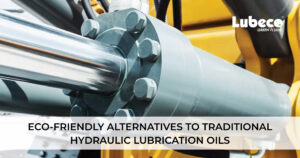In every machine or parts of machinery such as automobile engines, industrial machineries, and home appliances, there is always a need for lubrication so as to enable smooth efficient and long lasting operation. The application of the right type of lubricating oil will not only help in increasing the life span of the machinery or equipment but also will increase performance while lowering the maintenance cost.
However, the availability of various types of lubricants complicates the process of selection of the most suitable lubricants.
1. Mineral Oils
Mineral oils are considered the oldest type of lubricants and include those made from the most refined crude oil. They are effectively utilised in a number of applications such as the engine of cars, gear boxes of machines, and compressors.
These kinds are more commonly used in machinery, and especially used in engines with lower outputs
Mineral oils have a considerable amount of advantages. They are economically priced, and easily available in the market. At the same time, they also work perfectly in moderate to mild operating conditions.
In regards to the limitations, such oils may become non-functional under extreme heat or pressure. Consequently, high frequencies of oil change intervals are required since they are organic oils.
2. Synthetic Oils
Synthetic lubricating oils are chemically manufactured to provide a very high performance under extreme conditions. They are processed through much more complex refining, ensuring that their oils have a uniform molecular structure and are virtually free from impurities.
Primarily, they are used in all High Performance Engines (cars and motorcycles etc.) Heavy-duty industrial equipment High-temperature or high-stress environments. Advantages include- excellent thermal stability, longer duration between oil change intervals and more efficient protection in extreme temperatures.
On the flipside, synthetic oils cost higher as compared to mineral oils. Also, it is not advisable to use them for older engines that already use mineral oils.
3. Semi-Synthetic Oils
Semi-synthetic oils are a blend of mineral and synthetic oils. They combine the affordability of mineral oils with some of the performance benefits of synthetics, making them an excellent middle-ground option.
Commonly, semi-synthetic oils are best suited for moderately demanding engines and equipment. Vehicles or machines that need better performance than mineral oil but don’t require full synthetic can also benefit.
Semi-synthetics generally have a more efficient utilisation as compared to minerals. They are, also, more cost-effective than full synthetics along with possessing improved resistance to oxidation and breakdown,
However, it is important to note that they are not as long-lasting or high-performing as full synthetic oils.
4. High Viscosity Oils
Viscosity is the measure of fluid thickness or its flow rate. High viscosity oils are known as thick oils. They are used in machines subject to extreme pressure and heavy loads. A thick film made by these oils shields moving parts from wear and tear.
Ideally they are suited best for industrial gear, gearboxes, bearings, hydraulic applications etc. Thick oils, of course, provide a strong protective film while also providing great pressure resistance
Thick oils should not be used in cold conditions as they can cause slowness of machinery parts. They are also not recommended for the engines and machinery that require high lubrication flow.
How to Choose the Right Lubricating Oil for Your Equipment
When selecting a lubricating oil, consider the following factors:
- Operating Conditions: Will the equipment be exposed to extreme temperatures, heavy loads, or high speeds? Choose an oil with the right viscosity and thermal stability.
- Manufacturer’s Recommendations: Always check the manufacturer’s guidelines for the recommended oil type and viscosity.
- Maintenance Goals: If reducing maintenance frequency is a priority, synthetic oils may offer better long-term protection and fewer oil changes.
- Environmental Considerations: For environmentally sensitive applications, biodegradable oils might be the best option.
- Cost vs. Performance: While synthetic oils offer superior performance, mineral or semi-synthetic oils might be more cost-effective for less demanding equipment.
Proper lubrication oil choice is necessary to ensure that the equipment functions and lasts longer. The type of lubrication oil chosen must be the right one, whether it is mineral, synthetic, semi-synthetic, high or low viscosity, biodegradable, or food-grade. The proper selection ensures smooth running, higher efficiency, and prolonged duration of operation, thus eliminating downtime and costs for maintaining the equipment.










